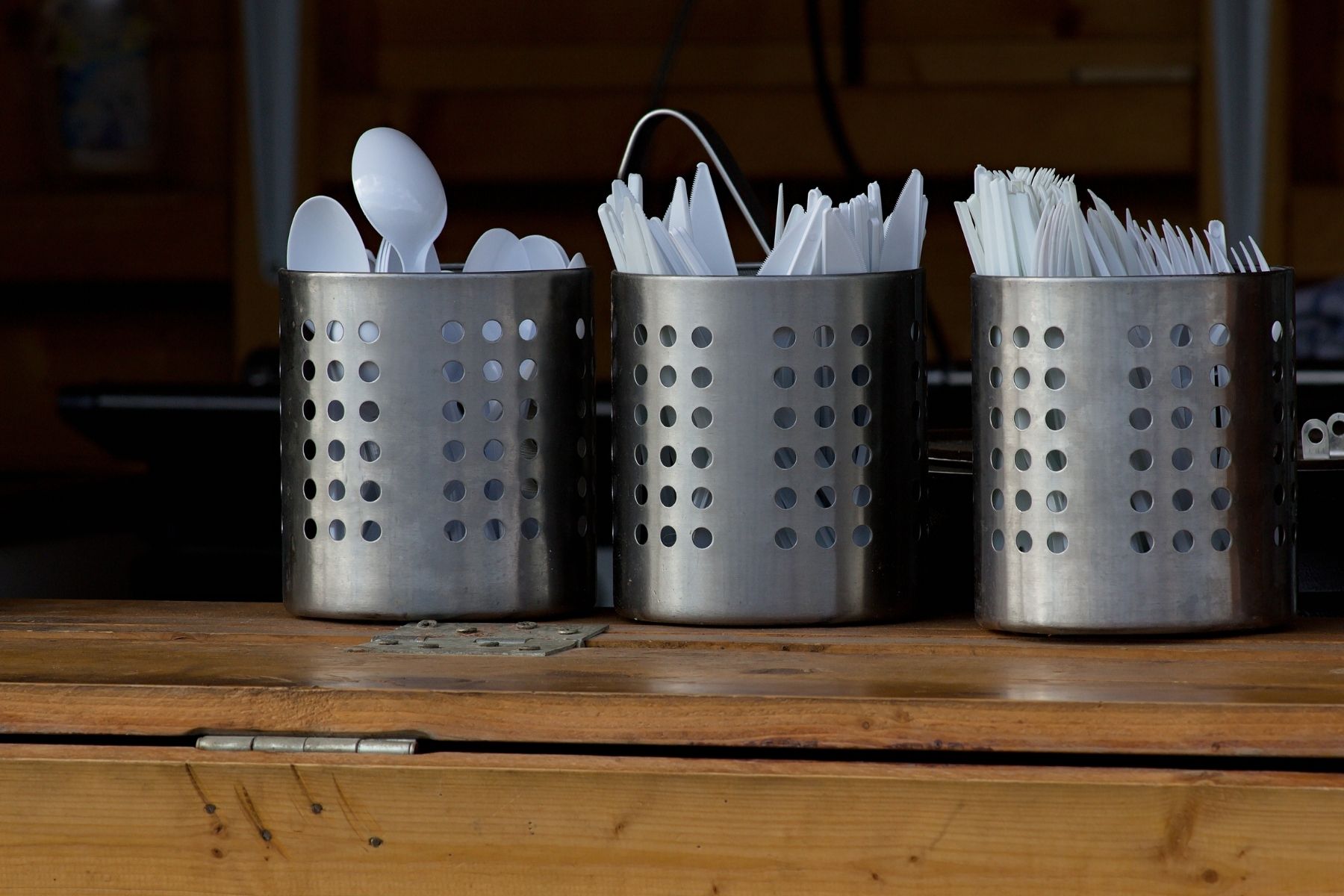Single-use plastics have a demonstrated impact on the environment, posing a life-threatening risk to our wildlife and waterways, and contributing to litter and landfill.
Banning these plastics is an important step towards a more sustainable future, which is important for WA and the planet as a whole. Certain steps have already been taken to reduce these items in the environment, including a ban on lightweight plastic bags introduced in 2018 and the commencement of the Containers for Change container deposit scheme in 2020.
Small businesses need to plan ahead for the impacts the ban on single-use plastic items will have on your operations, if you have traditionally relied on disposable plastic products to serve your customers.
Here is your quick guide to some of the changes coming - and what you can do to get your business ready.
What are “single-use” plastics?
Single-use plastics are plastic items which are designed to be thrown away after one use and can’t be recycled. To help the environment, they will be phased out of use under the WA Government’s Plan for Plastics.
What will be included in the stages of the plan?
Stage one - 1 January 2022
In stage one of the plan, which came into effect on 1 January 2022, the following single-use plastic items were banned for sale, supply and distribution:
- plates
- bowls
- cutlery
- drink stirrers
- drinking straws
- cups
- thick plastic bags
- expanded polystyrene (EPS) takeaway food containers
As well as:
- helium balloon releases
Enforcement of stage one regulations began on 1 July 2022 for all items except for single-use cups, which commenced on 1 October 2022.
Stage two - From 27 February 2023
Stage two of the plan, set to be completed by July 2025, includes a ban on the following single-use items.
| Item | Ban enforcement date |
|---|---|
| Expanded polystyrene packaging (loose) | 1 September 2023 |
| Expanded polystyrene cups and trays for raw meat and seafood | 1 September 2023 |
| Degradable plastics | 1 September 2023 |
| Cotton buds with plastic stems | 1 September 2023 |
| Microbeads | 1 September 2023 |
| Coffee cups and all disposable plastic cup lids | 1 March 2024 |
| Trays for food not covered in the Stage 1 ban | 1 March 2024 |
| Produce bags | 1 September 2024 |
| Lids for bowls, trays, plates and takeaway food containers | 1 September 2024 |
| Expanded polystyrene packaging (moulded) | 1 July 2025 |
There will be substantial transition periods in place to help businesses make necessary changes.
Questions to ask when purchasing alternatives to single-use plastics
Before ordering alternative products and packaging, ask your supplier to answer the following questions:
- Do these items comply with the WA plastics legislation?
- Do these items contain any form of plastic or compostable plastic?
It’s important to note that compostable plastic alternatives are banned for most items.
Tip: It is an offence to supply banned items or provide false or misleading information about a banned item. When asking these questions of your supplier, it is recommended that you do so in writing so you have a record of their response.
Are there any exemptions?
Some people in the community require certain single-use plastic items, such as plastic drinking straws, to meet their life needs. Exemptions for plastic drinking straws in certain settings (such as the disability, health and aged-care sectors) will be provided to allow suitable ongoing access to these products.
Businesses can also submit an application for an exemption under the regulations for a prescribed item.
How to manage the impact on your business
Here are some ideas which might help you to prepare for the ban on single-use plastics in your business.
- Get informed. There are many more sustainable options available once you start exploring single-use plastic alternatives. Some products are made from bamboo, natural or recyclable materials - or you may be able to introduce reusable alternatives.
- Look for opportunities. Cutting out single-use plastics could lead to some fresh new ideas for your business. For example, you could explore offering a small discount to customers who bring their own cups or containers. If you sell packaged products, there may be some new branding or partnership opportunities available with a new, more sustainable type of packaging.
- Look at your previous wins. Adjusting to changes and new regulations is part of running any business - it just takes time to plan ahead and then to adjust to the new changes. Perhaps your business has already adapted to the plastic bag ban and container deposit schemes and you can take a similar approach to removing single-use plastics from your business.
- Focus on the bigger picture. There’s no doubt that single-use plastics have been convenient and cheap to provide - but now it’s time to focus on a more sustainable future. Being more environmentally-friendly in your business benefits your customers, which can have a positive impact on your business in the longer term.
- Use the assistance and information available to help businesses adapt to the change, detailed below.
More information
The State Government is committed to helping WA businesses adapt to these changes with a range of advice and support. You might also find a lot of useful information relevant to your particular products and services within your own industry networks.
The following resources are available to help businesses to adapt to the changes:
- The National Retail Association is providing education and support resources online or from their hotline 1800 817 723.
- WA Plastic Free is assisting food retailers, local governments, suppliers, manufacturers and composters to become plastic free.
- Stage one single-use plastic ban resources (WA.gov.au)
- Stage two single-use plastic ban resources (WA.gov.au)
If you’d like to discuss this or any other issue your business is facing, you can get in touch with our free business advisory service.




